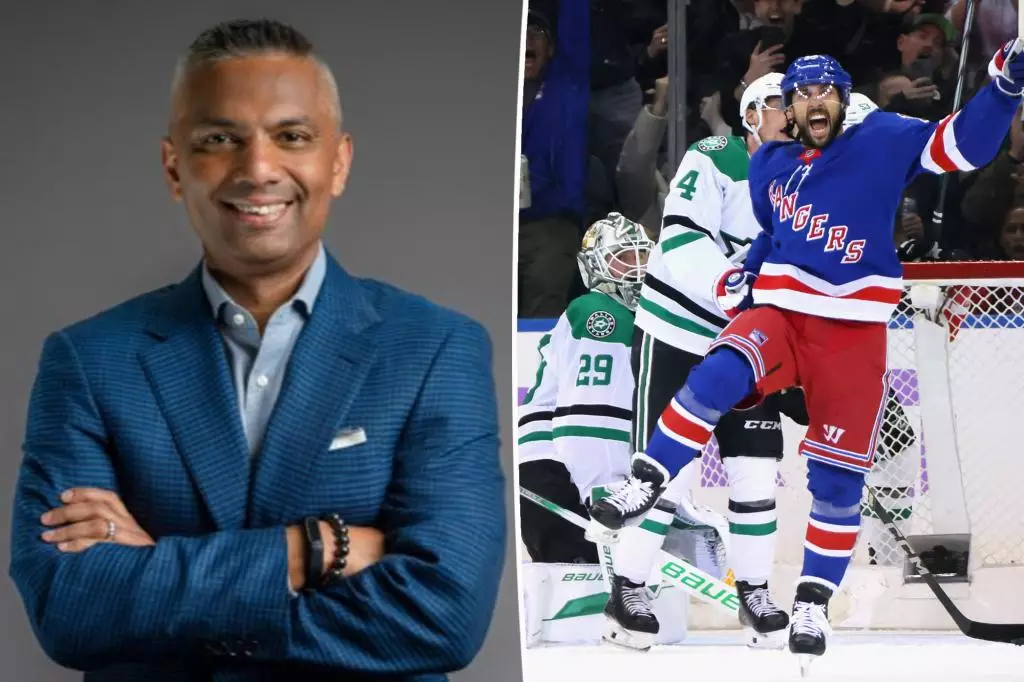The recent spectacle at Madison Square Garden sparked surprise and curiosity among sports fans and industry observers alike. During a New York Rangers game against the Dallas Stars, the CEO of Altice, Dennis Mathew, was spotted enjoying a hot dog in the stands. This sight was particularly striking given that his company, which owns the cable service Optimum, has been in a fierce dispute with the Madison Square Garden Company over broadcasting Rangers games. The irony of a senior executive from a company that isn’t airing these games being present at the venue was not lost on anyone, leading to speculation and intrigue.
Mathew’s appearance at the game raises essential questions about the relationship between corporate interests and consumer access to entertainment. Sources have suggested that Mathew’s attendance was not simply a casual outing; rather, it was reportedly related to a pre-scheduled business meeting with clients. However, the optics of a cable executive indulging in a sporting event he has rendered inaccessible to his own customers paint a picture of disconnection. While fans are left scrambling to find alternative viewing methods, Mathew’s enjoyment of the game starkly contrasts the frustrations of those unable to watch from home.
The Broader Battle Over Broadcasting Rights
The conflict between Altice and the Madison Square Garden Company has serious implications for viewers, especially considering that roughly a third of New Yorkers typically consume games through Optimum. The ongoing negotiations are steeped in complexities surrounding carriage fees—the payments cable companies make for broadcasting channels. Altice’s stance is that the proposed terms from MSG would unjustly force customers who are uninterested in watching games to cover costs for the extra programming. This claim points to a deeper issue of pricing and fairness in an industry that is often criticized for its lack of transparency and consumer-friendly practices.
The negotiation dance between the two entities appears to have escalated into a game of leverage, much like the sport itself. Altice is fighting back against proposals they perceive as exploitative, calling them a form of price gouging. This perspective creates an almost adversarial atmosphere reminiscent of on-ice rivalries. The disconnect between the consumer’s reality and the executives’ maneuvers deserves scrutiny, as the fallout from this impasse continues to impact fans directly.
As the battle rages on, one has to wonder: who ultimately benefits from this situation? Executive attendance at a game meant to signify goodwill is muddled by the actual experiences of viewers. The strife over broadcasting rights is not just a corporate feud; it represents a significant challenge for loyal fans of the sport. If industry players continue to prioritize profits over accessibility, the integrity of sports broadcasting could be jeopardized, leaving fans caught in the crossfire. The takeaway here is a reminder of the importance of considering the viewer experience amidst corporate negotiations—after all, in the world of sports, it’s the fans who truly pay the price.

